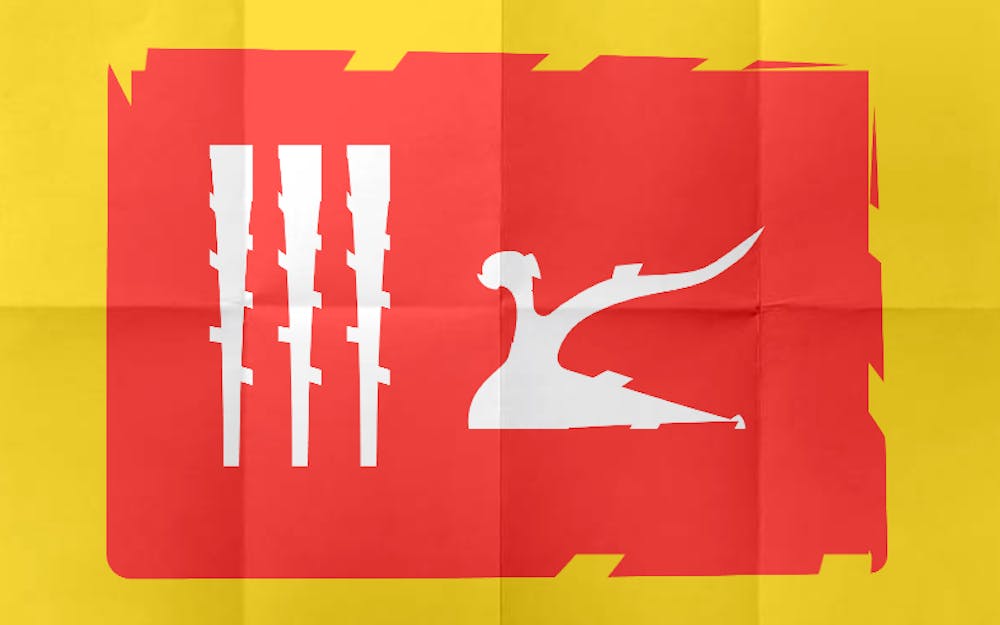Up until a couple of years ago, I described myself as Indian for almost my entire life.
Someone would ask me, “Where are you from?"
And every time I would reply with a huge grin on my face, “Oh, I’m from India!”
Looking back, I realize every casual response about my identity deepened the wound of my Kashmiri heritage for me and my people.
Most people who look at a world map would be hard–pressed to find Jammu and Kashmir, two union territories that are often labeled as part of India, one of many signifiers that illustrate the reality of Indian settler colonialism.
Settler colonialism is defined as the systematic replacement of indigenous populations with an invasive settler society that, over time, develops a distinctive identity and sovereignty. The primary lands that are identified as settler–colonial states are Turtle Island, Canada, Australia, South Africa, and the Israeli–occupied territories of Palestine.
However, most contemporary research on settler colonial theory neglects to mention or prioritize the hidden occupation of Jammu and Kashmir by Indian colonizers. The origin of Indian settler-colonial occupation began in 1947 when Indian military forces invaded Jammu and Kashmir, and military troops have been deployed in the territories since then. In August of 2019, 38,000 Indian troops arrived in Kashmir, shutting down schools and colleges at the start of their occupation. Then, India moved to revoke Kashmiri sovereignty by repealing Articles 370 and 35A , which previously gave Kashmir special status and semi–autonomy.
To prevent national outcry the public increasing awareness of the illegal occupation, the Indian government instituted a communications blackout that forced 7 million Kashmiri people to lose access to the internet and cell service—all while detaining politicians, activists, and scholars. Indian Prime Minister Narendra Modi claimed it was to curb unrest, a common tactic India uses to portray Kashmiri people as rebellious, violent criminals.
Since revoking Kashmiri autonomy, India has used many settler–colonial techniques to steal land, resources, and displace the indigenous population of Kashmir. The Indian government has allowed foreign corporations to join auctions over coal mines in Kashmir, which occurred during the communications blackout so indigenous people could not participate. India instituted a Domicile Law allowing Indians to migrate to Kashmir and become 'domiciles,' a step up from permanent residents. Meanwhile, the military has committed thousands of extrajudicial killings of Kashmiri people by calling them rebels.
Even more troubling, India has instituted nationalist propaganda and is attempting to alter Kashmir’s past through the rewriting of textbooks to fit the right–wing Hindu narrative of the Bharatiya Janata (BJP) Party. The BJP Party has a long history of changing the narrative of India and Kashmir's past. Indian nationalist history situates Kashmiri Muslims as foreign invaders foreign while Kashmiri Hindus, the Pandits, are the aborigines or indigenous people of the valley and want to rejoin India. Although the Pandits are the minority in Kashmir, the Indian government uses this demographic dilution to disavow Kashmir's multi–ethnic past and justify the usurpation of Kashmir's autonomy.
Similar to the original theft of indigenous land in the Americas, India has undertaken this project under the guise of creating a national Indian identity through annexing Jammu and Kashmir. The true objective of India’s tactics is economic expansion and exploitation of Kashmir’s land and resources as well as the desire to cement a racial and religious purity and superiority of Indian Hindus over Muslims.
Despite the countless insidious acts committed by India against the people of Jammu and Kashmir, there's virtually no international visibility. Kashmiri journalists have been intimidated, detained, and sometimes disappeared, making it even more difficult to obtain non–propagandized reporting. News outlets have covered Kashmir fleetingly, but the topic is consistently forgotten by the Western media. These modern–day acts of imperialism, authoritarianism, and settler colonialism are not highlighted nearly enough. Accordingly, there's a blind spot around the urgency and danger of these situations.
Kashmiri people, the Uyghurs, Armenian, Nigerians, and Palestinians are not at the forefront of discussions on international global crises, but they should be. Domestic issues are important to discuss, but we must remember there are violent and dangerous situations going on in many other places in the world.
Growing up, I always chose not to discuss an entire half of identity because I thought Kashmir was unimportant, unknown, and therefore, irrelevant. Each time someone asked me where I came from, I denied my Kashmiri heritage, perpetuating the colonizing presence of Indian blood in my body by erasing my origins and propagating India’s project of disappearing indigenous Kashmiri people.
The day my father told me the truth about the relationship between the two halves of my identity, I have never again solely described myself as Indian. I will not render Kashmir invisible any longer. I will not shy away from explaining where Kashmir is or criticizing the Indian government. Indian settler colonialism needs to be discussed and widely recognized. More awareness from me and my people are key to doing that.
Now, when someone asks me, “Where are you from?”
I proudly declare that I am Kashmiri, and I stand with Kashmir.
Please follow the @standwkashmir Instagram account for updates and information regarding India’s illegal occupation of Kashmir and Jammu.

